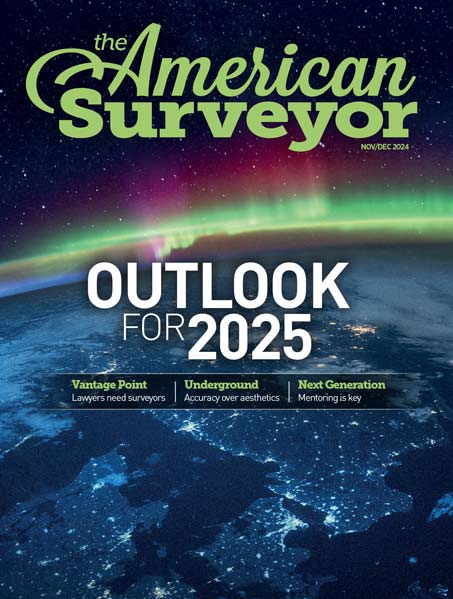Washington, Oct. 24—According to an October 2023 survey of ABC contractor members published today, 98% of respondents stated that controversial prevailing wage and government-registered apprenticeship policies imposed by the Inflation Reduction Act will make them less likely to bid on clean energy projects. The survey gauged ABC members’ responses to a proposed rule issued by the Internal Revenue Service on Aug. 29 that would implement these requirements.
“The concerns expressed by the overwhelming majority of respondents indicate that the proposed rule fails to provide much-needed regulatory certainty and will ultimately cause unnecessary cost increases and delays to America’s clean energy projects,” said ABC Vice President of Regulatory, Labor and State Affairs Ben Brubeck. “Stakeholders seeking enhanced IRA tax incentives conditioned on meeting controversial prevailing wage and government-registered apprenticeship programs are sending a clear message that more clarity is required for the IRA to deliver on promised benefits.
“These survey results confirm that ABC members will be much more likely to participate in clean energy construction if there is clarity in these policies,” said Brubeck. “ABC members expressed a wide range of concerns, from a shortage of government-registered apprenticeship programs and participants in this competitive labor market to opaque prevailing wage regulations that will increase compliance burdens and discourage competition from small businesses. The IRS must provide additional information and promote policies that encourage competition as implementation of the IRA moves forward.”
According to the survey:
- 96% of respondents agreed the IRA’s mandates would decrease competition among contractors on clean energy projects.
- 98% of respondents indicated that the proposed rule’s incentives for union-favoring project labor agreements would make them less likely to bid on these IRA projects.
- 85% of respondents stated that the necessary GRAPs for IRA projects had not been established in their geographic area, and 90% do not believe sufficient apprentices are available to meet the IRA’s labor hour requirements.
- 98% of respondents agreed that complying with union work rules where collectively bargained union wage rates prevail would increase the burden of complying with IRA prevailing wage requirements.
Small businesses, which represent the vast majority of construction firms, were deeply concerned with the proposed rule’s requirements. Of respondents that self-identified as small businesses under the Small Business Administration’s size standards, 97% said they would be less likely to bid on IRA projects due to the proposed rule’s requirements, 98% expressed concerns regarding unclear union work rules for prevailing wage classifications and 89% said sufficient apprentices to meet IRA GRAP requirements are unlikely to be available.
“ABC members work on a wide array of projects eligible for enhanced IRA tax incentives, including solar and wind energy, electric vehicle charging stations, carbon capture and more,” said Brubeck. “Unfortunately, many ABC contractors will be needlessly disincentivized from bidding on these projects because of the Biden administration’s lack of regulatory clarity in implementing the IRA and its schemes pushing clean energy developers to mandate anti-competitive and inflationary project labor agreements, which increase costs by 12% to 20% and reduce competition from more than 88% of the U.S. construction industry workforce.”
ABC will be submitting comments to the IRS by Oct. 30 in response to the proposed rule, as well as assisting contractor members in providing comments.
The Inflation Reduction Act was signed into law on Aug. 16, 2022, and provides over $270 billion in tax incentives for the construction of solar, wind, hydrogen, carbon sequestration, electric vehicle charging stations and other clean energy projects.
However, this is conditioned on requirements that project contractors meet prevailing wage and apprenticeship requirements. Developers/taxpayers must ensure that contractors pay all construction workers prevailing wages and benefits set by the U.S. Department of Labor via the Davis-Bacon Act. Developers must also ensure that contractors utilize apprentices enrolled in government-registered apprenticeship programs for certain percentages of all construction hours worked on a project (12.5% of all work hours in 2023 and 15% of all work hours in 2024 and thereafter), among other requirements.
ABC issued a statement on the August 2023 proposed rule expressing concerns with its lack of clarity and urging the IRS to make critical improvements prior to finalization.
Previously, ABC commented on the IRS’s November 2022 guidance on the IRA, which established that GRAP and prevailing wage requirements would take effect on Jan. 30, 2023. ABC’s comments called for regulatory clarity and raised concerns with the anti-competitive impacts of GRAP and prevailing wage requirements on clean energy projects.
For more information on the proposed rule and other IRA requirements, visit abc.org/ira.
About ABC
Associated Builders and Contractors is a national construction industry trade association established in 1950 that represents more than 22,000 members. Founded on the merit shop philosophy, ABC and its 68 chapters help members develop people, win work and deliver that work safely, ethically and profitably for the betterment of the communities in which ABC and its members work. Visit us at abc.org.
